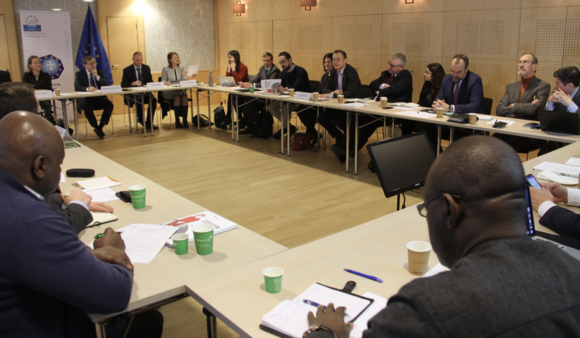On Thursday 23 January 2020 COMECE hosted a dialogue meeting between Churches, faith-based actors, as well as international and European policy-makers, on how to enhance the cooperation among actors working in the field of integral and sustainable human development.

(Credit: COMECE)
Co-organised with Caritas Europa in the context of on-going negotiations on the 2021-2027 Multiannual Financial Framework (MFF), the meeting highlighted the important role of Churches and faith-based organisations in promoting an understanding of sustainable development centred on persons, families and communities.
As first and longstanding operational field actors deeply rooted in local realities, religious networks provide basic social services (eg. education, healthcare) and contribute to building peace through their mediation and reconciliation efforts.
The dialogue meeting followed up on a recent European Parliament’s resolution encouraging the EU “to adopt guidelines on partnerships with Churches and faith-based organisations in [the field of] cooperation for development, based on experiences of international organisations, such as UNICEF, the World Bank, WHOand the UN Development Programme”.
The participants discussed concrete ways to build upon existing mechanisms and practices by addressing obstacles that limit the potential of such partnerships. In this regard, they referred to enhancing religious literacy and fostering mutual understanding and trust as possible vehicles to make cooperation with religions actors more effective.
The meeting involved stakeholders from the European Parliament, the European Commission, the European External Action Service (EEAS), the World Bank, as well as representatives of Churches and grassroots faith-based organisations.
Media
Photo gallery of the event
